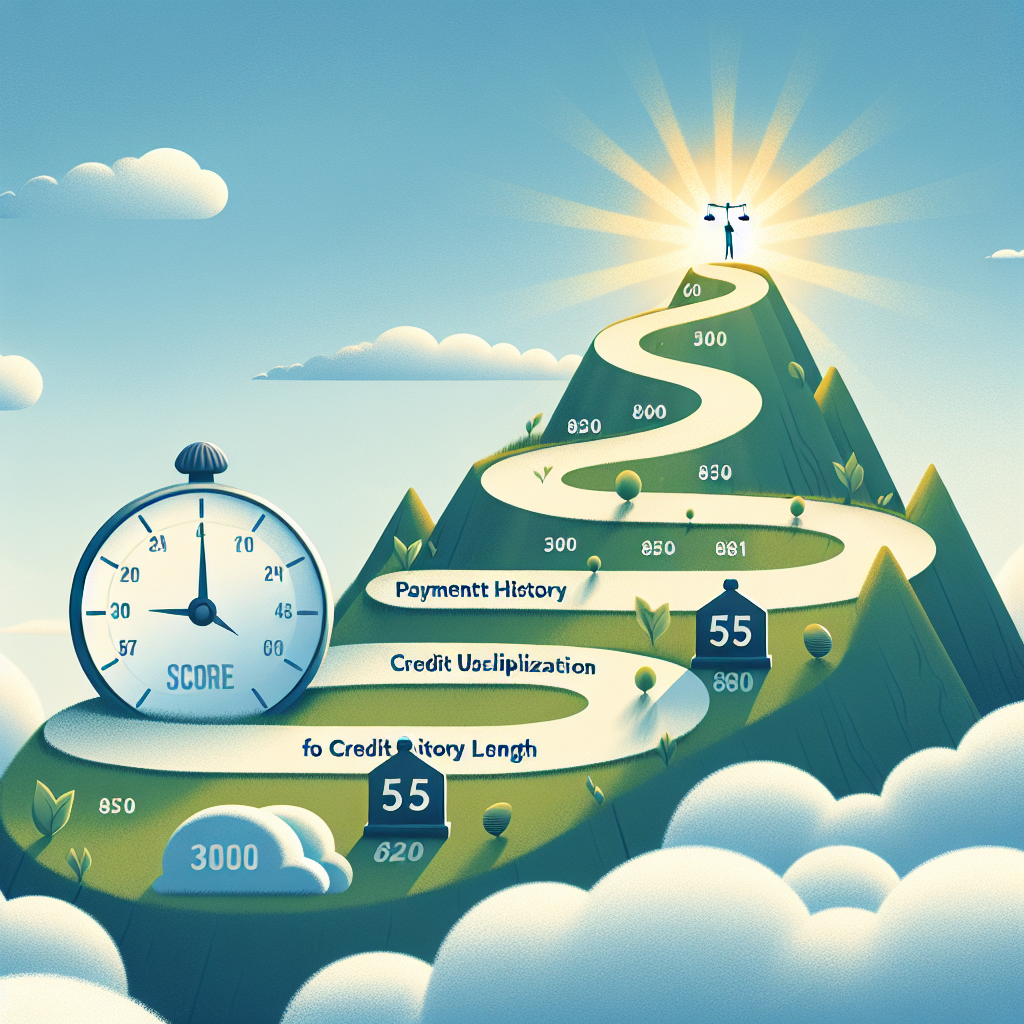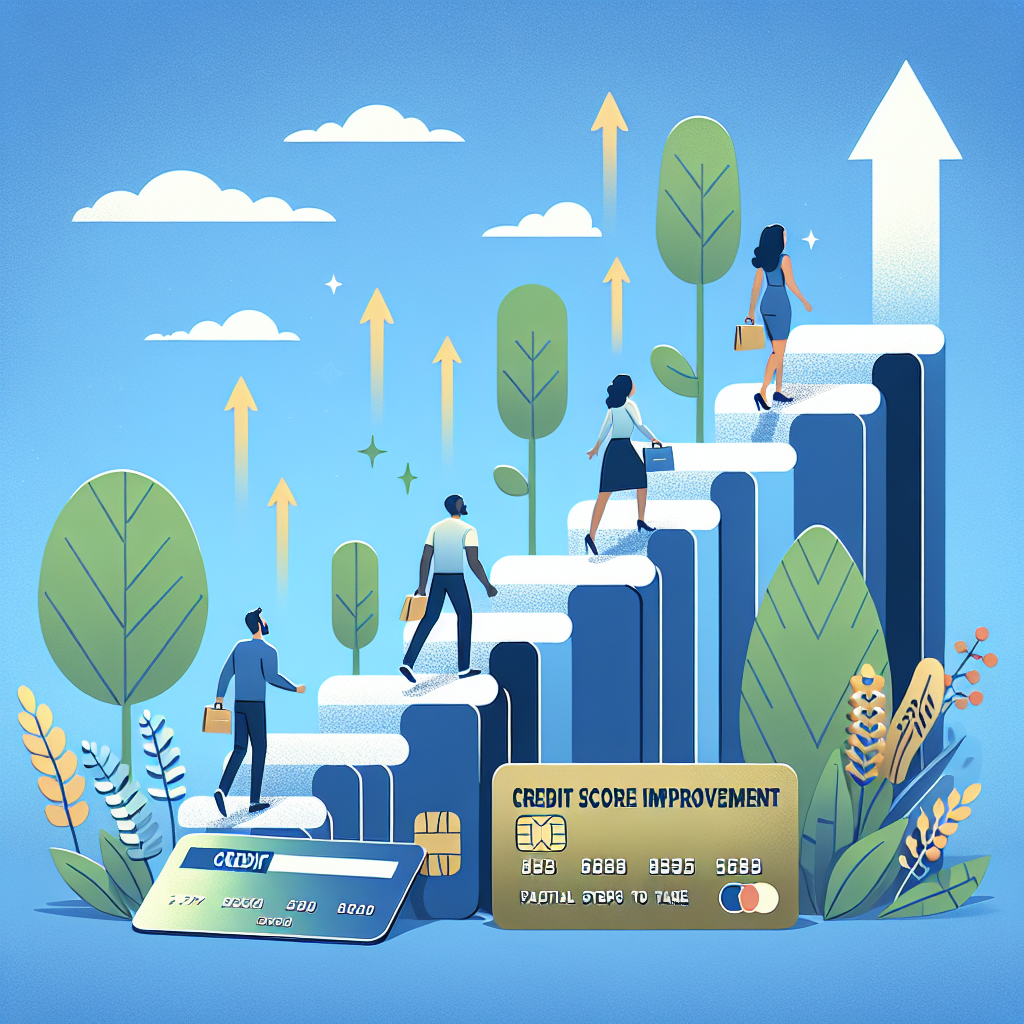Credit Score Improvement: Practical Steps to Take
Your credit score can feel like a mysterious number that holds the key to your financial future. Whether you’re looking to buy a house, lease a car, or snag a new credit card, a good credit score can make a world of difference. Fortunately, improving your credit score is not as daunting as it seems. In this guide, we’ll dive into practical steps you can take to boost your score and secure more financial freedom. Let’s get started!
Table of Contents
1. Understanding Your Credit Score 📊
2. Check Your Credit Report Regularly 📝
3. Pay Your Bills on Time ⏰
4. Reduce Your Credit Card Balances 💳
5. Limit New Credit Requests 🚫
6. Conclusion: Stay Committed and Informed 🔍
7. FAQs 🤔

Understanding Your Credit Score 📊
Before you can improve your credit score, it’s important to understand what it is. Your credit score is a numerical representation of your creditworthiness, typically ranging from 300 to 850. It’s calculated based on factors like your payment history, credit utilization, and length of credit history. The higher your score, the better your credit profile. Knowledge is power, so let’s demystify this number!
Check Your Credit Report Regularly 📝
One of the first steps to improving your credit score is to regularly check your credit report. You’re entitled to a free report from each of the three major credit bureaus – Experian, Equifax, and TransUnion – once a year. Look out for errors or fraudulent activities that could be lowering your score. Correcting these mistakes can give your score an instant lift.

Pay Your Bills on Time ⏰
Paying your bills on time is one of the most impactful ways to improve your credit score. Late payments can stay on your credit report for up to seven years, so setting up automatic payments or reminders can help you stay on track. Consistency is key, and over time, your score will reflect your reliable payment habits.
Reduce Your Credit Card Balances 💳
High credit card balances can negatively impact your credit utilization ratio, which is the percentage of your available credit that you’re using. Aim to keep this ratio below 30% to positively influence your score. Consider paying more than the minimum payment each month or making multiple payments throughout the month to reduce balances faster.
Limit New Credit Requests 🚫
Each time you apply for new credit, a hard inquiry is recorded on your credit report, which can temporarily lower your score. Try to limit the number of new credit applications and only apply for credit when necessary. This not only protects your score but also encourages you to make thoughtful financial decisions.
Conclusion: Stay Committed and Informed 🔍
Improving your credit score is a marathon, not a sprint. It requires patience, discipline, and a commitment to financial health. By understanding your credit score, regularly checking your credit report, paying bills on time, reducing credit card balances, and limiting new credit requests, you’re on your way to achieving a healthier credit profile. Keep at it, and watch your score soar!
FAQs 🤔
Q1: How quickly can I improve my credit score?
A1: While quick fixes are rare, you can start seeing improvements in your credit score within a few months by consistently paying bills on time and reducing your credit card balances.
Q2: What’s the best way to dispute an error on my credit report?
A2: Contact the credit bureau that issued the report and provide documentation supporting your claim. They are required to investigate within 30 days.
Q3: Does checking my own credit report affect my score?
A3: No, checking your own credit report is considered a soft inquiry and does not impact your credit score.
Q4: Can closing a credit card improve my credit score?
A4: Not necessarily. Closing a credit card can reduce your total available credit and increase your credit utilization ratio, which could lower your score.
Q5: Is it bad to have multiple credit cards?
A5: Not at all! Having multiple credit cards can be beneficial if managed properly, as it can increase your total available credit and help maintain a low credit utilization ratio.
Improving your credit score is within your reach. Stay informed, make smart financial decisions, and your credit score will thank you! 🌟





